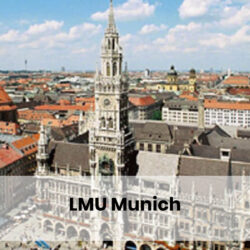Study, Work, Live in Europe
Europe is steeped in history and rich cultural diversity, and studying there provides ample opportunity to immerse yourself in a multitude of experiences, depending on your tastes. Whether you aspire to visit the incredible array of historical sites, follow in the footsteps of a myriad of notable historical figures, eat your way around the countryside, or simply soak up the atmosphere of a region where culture, history, and innovation intersect, Europe is an excellent choice for study.
Europe is home to approximately one-ninth of the world’s population. There are 87 ‘distinct peoples’ in Europe, 33 of which form the majority population of a particular country, and the remaining 54 constitute ethnic minorities. Europe is also home to the highest number of migrants of any region in the world. These are just a few reasons Europe offers an abundance of cultural diversity within a relatively compact geographic area, which means you’ll get to meet lots of interesting people.
Croissants in Paris, fettuccine al Pomodoro in Rome, Patatas Bravas in Barcelona, bratwurst in Berlin, poffertjes in Amsterdam, gyros in Athens. It is worth studying in Europe for food alone. If you love to sample delicious local cuisine, then you will be spoilt for choice across the region. Even if you’re not a foodie, the sheer volume of culinary options means you’re bound to find something you love!
Why Study In Europe?
-
Europe offers an incredible diversity of universities that can cater for even the most particular needs. Some European universities, established as early as the 12th century, are among the most prestigious in the world. Others, less than 50 years old, are on the rise as emerging institutions of excellence. Facts and figures are essential when making a life-changing decision like studying abroad. Here are a few that demonstrate why studying in Europe is an excellent choice: According to The Shanghai Ranking, European universities accounted for more than a quarter of the highest performing universities in the world in 2018. In terms of emerging institutions, 16 European universities were featured in the QS Top 50 Under 50 rankings for 2018, a list which celebrates the world’s leading young universities.
Europe is one of the safest regions in the world, offering a high standard of living, and recent figures reinforce this fact. European countries (excluding the UK) make up 19 of the top 30 countries in the 2018 Legatum Prosperity Index. Furthermore, 14 of the world’s safest 20 countries are in Europe, and the region’s popularity among students is evident, with QS ranking 16 European cities (not including the UK) in its list of the Top 50 Best Student Cities for 2018.


Documents Required
✔ Attested copies of X, XII & Graduate Degree (if applicable)
✔ Mark Sheets including Backlogs (Re-sits).
✔ Evidence of English Language proficiency e.g. IELTS, TOEFL, etc.
✔ Standardized Tests e.g. GMAT, GRE (where necessary for the programme).
✔ Two academic references.
✔ Two references from employers (where applicable).
✔ Passport-sized photographs.
✔ Statement of Purpose (SOP).
✔ Resume/CV.
✔ Draft for application fees, if applicable.
✔ Portfolio (for Art, Design & Architecture programme).
Other Certificates & Achievements of Extracurricular Activities.











